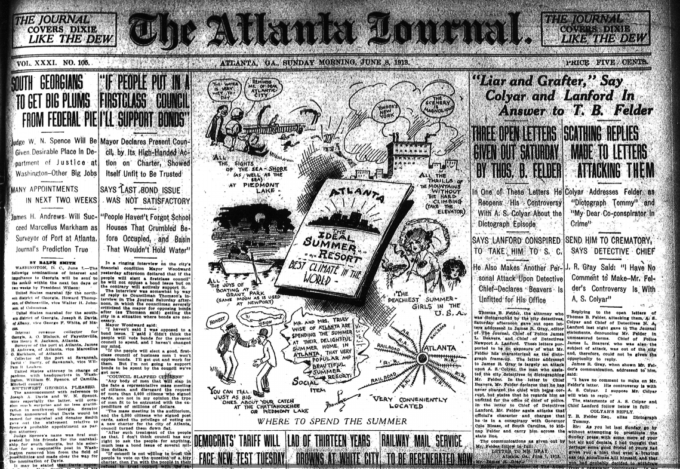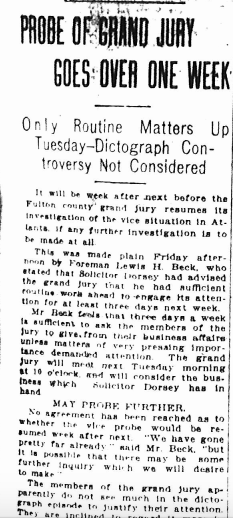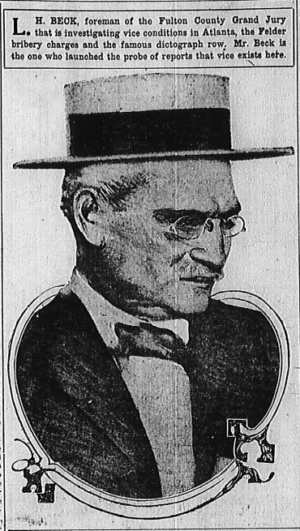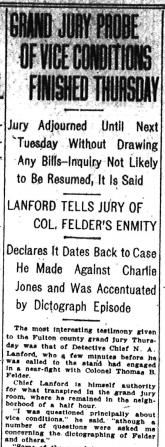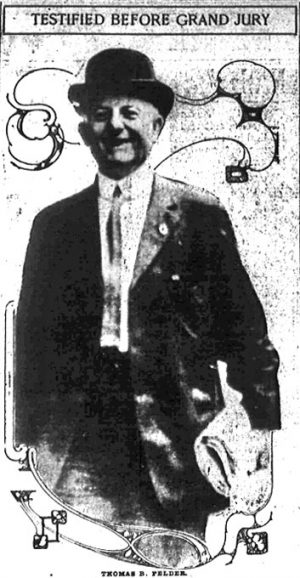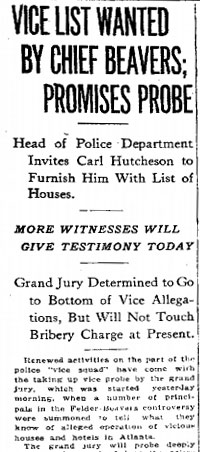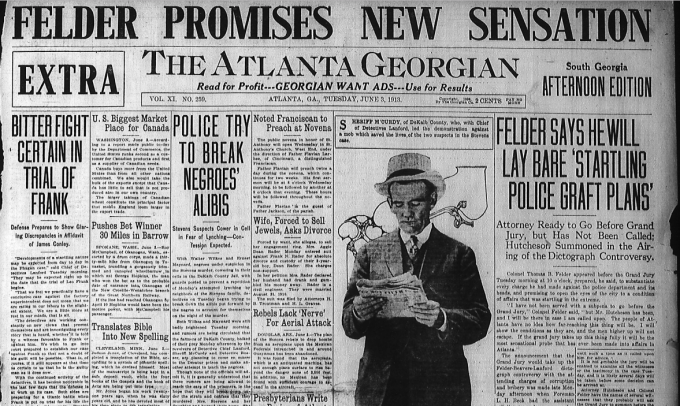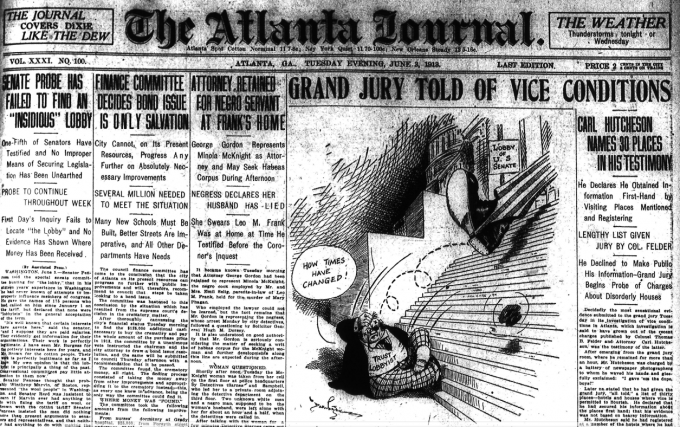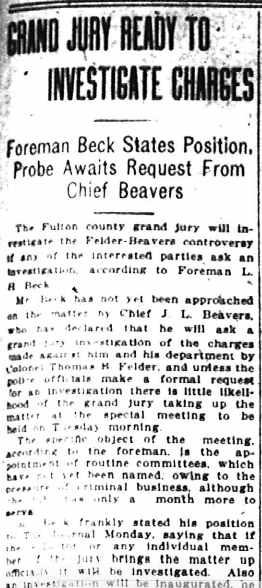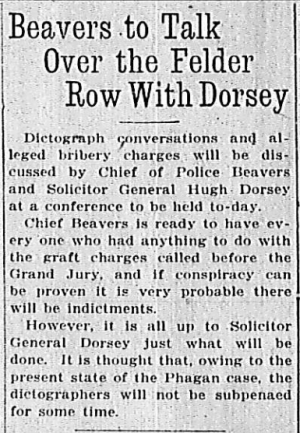
Another in our series of new transcriptions of contemporary articles on the Leo Frank case.
The Atlanta Georgian
Tuesday, June 24, 1913
Dorsey, Beavers and Lanford Summoned to Appear June 30 With All Affidavits They Have Secured Relative to the Phagan Slaying Case.
Just before the conference with both sides in the Frank case started Judge Roan intimated strongly that he would set the case for July 14 or July 28 and hold it in some more commodious court room than the one in which he sits on the fourth floor of the Thrower building. Judge Roan’s personal inclination leans to a date in July, and it is not likely that the State or defense will object to acceding to his wishes.
The date was definitely fixed for July 28 at the conference.
The first important legal move by the defense in the battle for the life and freedom of Leo Frank, accused of the strangling of Mary Phagan, was made Tuesday in the issuance of subpenas duces tecum for the prime movers in the prosecution of the factory superintendent.
The following have been subpenaed to appear:
Solicitor General Hugh M. Dorsey, who will prosecute the prisoner.
Chief of Police James L. Beavers, who was the leader in obtaining incriminating affidavits.
Pinkerton Detective Harry Scott, to whom is generally given credit for the admissions gained from Conley.
All other city detectives who have worked on the case.
All of them are ordered to produce any affidavits they may have bearing on the case in court June 30, indicating that the defense will be prepared to go on with the trial at that time.
Judge Roan, however, had called a conference of the attorneys on both sides of the case for 2 o’clock in the afternoon, when he announced that he would set the date definitely after the attorneys had been given an opportunity to say whether or not their cases would be in shape to present if the trial were called the last of this month.
Plan to Use Same Evidence.
The startling move on the part of the defense was taken to mean that Frank’s lawyers propose to use to free their client the very evidence the detectives and Solicitor General have collected to send him to the gallows.
The most significant demand is made upon Chief Beavers, who is commanded to bring into court the famed series of affidavits made by the negro sweeper, Jim Conley. It is evident that Attorneys Rosser and Arnold, who are conducting the defense, intend to tear the contradictory stories of the negro to tatters and make his statements so utterly ridiculous and improbable that the jury not only will refuse to accept them, but will interpret them as an effort of Conley to get from under the blame for a crime that he committed himself. Continue Reading →


 Another in
Another in  Another in
Another in  Another in
Another in  Another in
Another in  Another in
Another in 